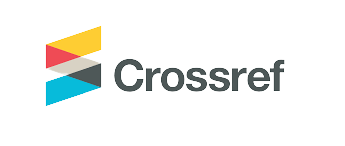Integration of Child Development Theory to Optimize Education and Parenting
Kata Kunci:
Child Development Theory, Education & Parenting, Piaget, Kohlberg, Fowler, Cognitive, Morals & FaithAbstrak
This article discusses the integration of various child development theories, particularly those of Jean Piaget, Lawrence Kohlberg, and James W. Fowler, as a basis for optimizing education and parenting. Child development encompasses physical, cognitive, moral, emotional, social, and spiritual aspects, all of which are interrelated in shaping a child's personality. Through a literature review, this study shows that Piaget's theory helps understand the stages of a child's cognitive development, Kohlberg's theory provides an overview of moral development, while Fowler's theory explains the stages of a child's faith and spirituality. The integration of these three theories is important to equip educators and parents in developing learning strategies and parenting patterns appropriate to the child's developmental stage. The results of the study indicate that a comprehensive understanding of child development theories can help teachers adapt teaching methods, parents provide appropriate parenting, and create a conducive learning environment. Thus, the integration of child development theories is key to shaping a generation that is intellectually intelligent, morally mature, and spiritually strong.
Referensi
Afif, W. (2019). Pembentukan Karakter Disiplin Siswa melalui Rutinitas Religius Tahfidz Al-Qur’an di Madrasah Tsanawiyah Al Fathimiyah Banjarwati Lamongan. UIN Sunan Ampel Surabaya.
Ali, H., Dalam, A., & Hukum, P. (2004). AM. Hasan Ali, Asuransi Dalam Persfektif Hukum Islam (Jakarta: Kencana, 2004), h. 55 39. 39–50. https://doi.org/https://www.ejournal.stiesyariahbengkalis.ac.id/index.php/iqtishaduna/article/view/122
Anta, P., Sampurna, C., & Susanto, R. (2025). Implementation of STEAM in Pesantren Experimental Study Based on Local Wisdom Curriculum. JISEI: Journal of Islamic Studies and Educational Innovation, 01(02).
Firoza, R. N. W., Barlinty, S. A., & Mokhamad, K. Y. (2025). The Implementation of Akhlaq-Based Curriculum in Islamic Schools. JISEI: Journal of Islamic Studies and Educational Innovation, 01(01).
Herdiyanti, Y., Janah, M., & Susanto, R. (2025). Building a Golden Generation : Synergy of Education , Technology , and Qur ’ anic Values. JISEI: Journal of Islamic Studies and Educational Innovation, 01(01), 36–48.
Huberman, A. M., & Jhonny, S. (2014). Qualitative Data Analysis a Methods Sourcebook. America: Arizona State University.
Kurniawati, D., & Susanto, R. (2025). Analysis of the Minister of Education ’ s Curriculum Policy in the 2019-2024 Vs . 2024-2029 Era. QALAMUNA: Jurnal Pendidikan, Sosial, Dan Agama, 17(1), 741–754. https://doi.org/10.37680/qalamuna.v17i1.7127
Livingstone Thompson. A. (2009). Protestant Theology of Religious Pluralism. Bern-Switzerland: Peter Lang AG: International Academic Publishers.
Qori, I. (2019). Analisis implementasi manajemen strategi dalam meningkatkan mutu pendidikan pondok pesantren. Management and Business Review, 3(2), 83–94. https://doi.org/10.21067/mbr.v3i2.4605
Roni Susanto, F. H. (2024). Education as an Agent of Social Change: A Sociological Persfective. Taqorrub: Jurnal Bimbingan Konseling Dan Dakwah, 5(2), 79–94. Retrieved from https://scholar.google.com/scholar?oi=bibs&cluster=16197885558079716437&btnI=1&hl=id
Rusmaniah, R., Mardiani, F., Handy, M. R. N., Putra, M. A. H., & Jumriani, J. (2021). Social Services Based on Institutional for Youth Discontinued School. The Innovation of Social Studies Journal, 2(2), 151. https://doi.org/10.20527/iis.v2i2.3082
Satriani, E., & Putra, A. (2021). The Impact of Fiqih Ibadah Materials on Amaliyah of Vocational High School Students. Journal of Islamic Education Students (JIES), 1(2), 75. https://doi.org/10.31958/jies.v1i2.3431
Sugiyono. (2016). Metode Penelitian : Kuantitatif, Kualitatif, dan R&D. Bandung: CV Alfabeta.
Susanto, R. (2024). Konsep Pendidikan Karakter dalam Islam. In Pendidikan Karakter Berbasis Islam (pp. 20–32). U ME Publishing.
Susanto, R., & Muhamma, d A. U. N. (2024). Transformasi Budaya Islam Nusantara di Tengah Tantangan Modernitas: Peran Nahdatul Ulama. In Trajectory Visi Kemanusiaan Sarjana NU (pp. 468–477). Publica Indonesia Utama.
Susanto, R., Munir, A., & Basuki, B. (2025). Preserving the Authenticity of Qirā’āt Sab’ah : A Comparative Study of Musy ā fahah Methods at Al-Hasan and Al-Munawwir Boarding School. Dialogia : Jurnal Studi Islam Dan Sosial, 23(01), 101–121. https://doi.org/10.21154/dialogia.v23i01.10500
Susanto, R., & Nuhaa, M. A. U. (2023). Menjaga Autentitas Bacaan al-Qur’an di Pesantren al-Hikmah Purwoasri Kediri. Imtegratia: Journal of Education, Human Development, and Community Engagement, 1(2), 143–152. Retrieved from https://ojisnu.nuponorogo.or.id/index.php/integratia/article/view/42
Susanto, R., Rohmah, W., Hidayanti, S. N., & Sugiyar, S. (2023). Interreligious Harmonization (Analytic Study of Kalicinta Village, Kotabumi, Lampung). Jurnal Kodifikasia: Jurnal Penelitian Keagamaan San Sosial-Budaya, 17(1). https://doi.org/http://dx.doi.org/10.21154/kodifikasia.v17i1.5729
Susanto, R., & Sugiyar. (2023). Implementation of Mutammimah Book Learning on the Reading Ability of Kutub al-Turats at Madrasah Riyadlotusy Syubban Ponorogo. Edukasi Lingua Sastra, 21(1), 207–2017. https://doi.org/https://doi.org/10.47637/elsa.v21i2.667
Susanto, R., & Syahrudin, S. (2024). Social Transformation Through Education: Building a Caring and Empowered Generation. Ngabari : Jurnal Studi Islam Dan Sosial, 17(2), 37–48.
Wahyudi, A., Nuriana, A. Q., & Irfan, M. (2025). Cultural Adaptation in Islamic Education : Navigating Between Tradition and Modernity. JISEI: Journal of Islamic Studies and Educational Innovation, 01(01), 101–114.
Yahuda, R. D., Susanto, R., Widodo, W., Kolis, N., & Abdillah, B. (2023). Musafahah Method Transformation on Learning Qiraah Sab’ah in PPTQ Al-Hasan Ponorogo. Masdar Jurnal Studi Al-Qur’an & Hadis, 5(2). https://doi.org/https://doi.org/10.15548/mashdar.v5i2.7293
Unduhan
Diterbitkan
Cara Mengutip
Terbitan
Bagian
Lisensi
Hak Cipta (c) 2025 Journal of Islamic Studies and Educational Innovation

Artikel ini berlisensiCreative Commons Attribution-ShareAlike 4.0 International License.







